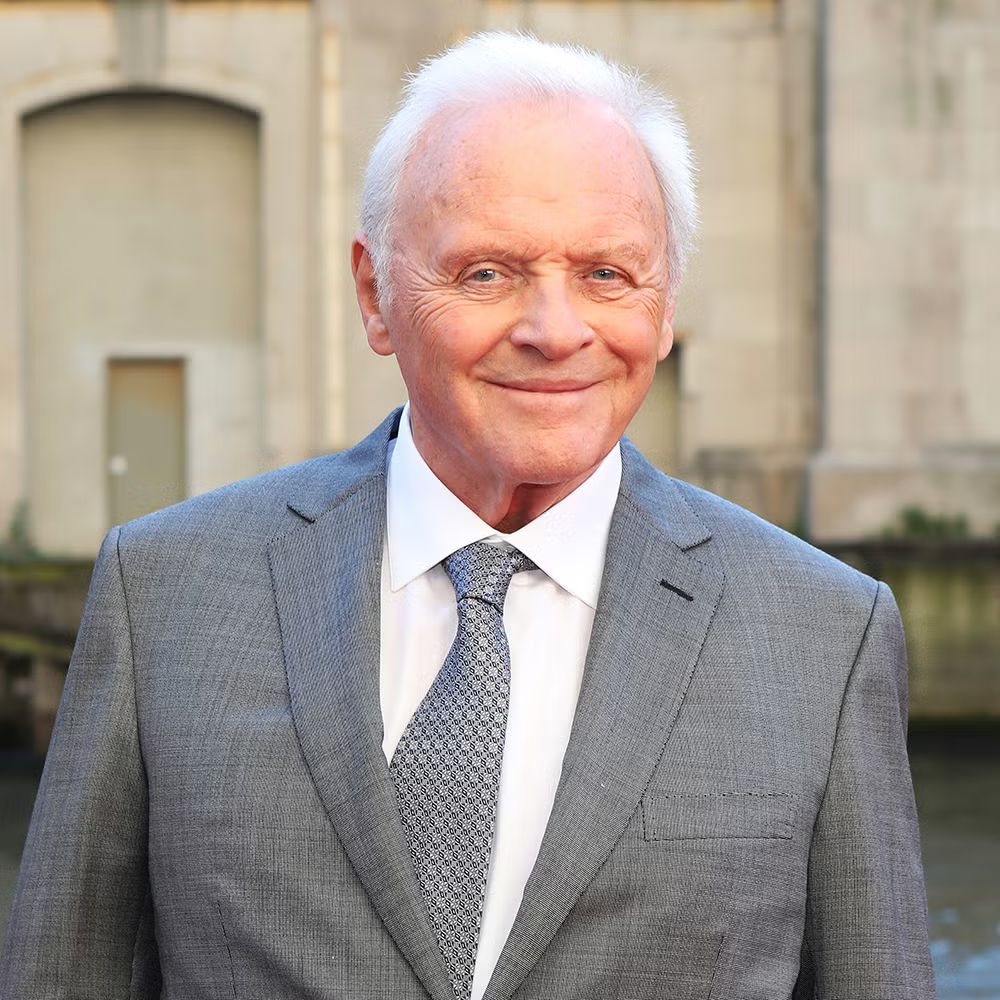
Table of Contents
Who Is Anthony Hopkins?
Sir Anthony Hopkins is a Welsh actor renowned for his vast and varied body of work across both stage and screen. Beginning his career on the stage in the late 1950s, he transitioned to film in the 1960s, becoming a household name in the decades that followed. Hopkins is widely recognized for his iconic roles in films such as The Silence of the Lambs, The Remains of the Day, and Amistad. He has been nominated for several Academy Awards, winning Best Actor for his portrayal of Hannibal Lecter in The Silence of the Lambs (1991) and for his role in The Father (2020). His diverse filmography includes dramatic works as well as more fantastical projects, such as Titus, The Mask of Zorro, Thor, and the television series Westworld.
Early Life and Acting Career
Philip Anthony Hopkins was born on December 31, 1937, in Margam, Port Talbot, Wales, to Muriel Yeats, a distant relative of the poet William Butler Yeats, and Richard Hopkins. His early years in Wales were marked by a relatively ordinary upbringing, but everything changed when he met the renowned Welsh actor Richard Burton, who would become a key influence on his future career. Inspired by Burton’s success, Hopkins enrolled at the Royal Welsh College of Music and Drama at the age of 15. After completing his studies in 1957, he served two years in the British Army before moving to London to train at the prestigious Royal Academy of Dramatic Art (RADA).
In 1965, Hopkins’ career took a significant leap when Sir Laurence Olivier, the legendary actor, invited him to join the Royal National Theatre as his understudy. Olivier, who recognized Hopkins’ exceptional talent, later described him in his memoirs as a young actor with immense promise. When Olivier fell ill during a production of Dance of Death, Hopkins stepped into the role, delivering a performance that captivated both critics and audiences. This marked the beginning of Hopkins’ rise to prominence on both stage and screen.
Billed as Olivier’s successor in British theatre, Hopkins soon transitioned to film, making his small-screen debut in a 1967 BBC production of A Flea in Her Ear. His first major film role came in The Lion in Winter (1968), where he portrayed Richard the Lionheart alongside film icons Peter O’Toole and Katharine Hepburn.
Throughout the 1970s, Hopkins continued to build his reputation as a versatile performer, equally at home on stage and on screen. Notable roles during this period include his Broadway performance in Peter Shaffer’s Equus (1974). His methodical approach to acting, including his unique rehearsal techniques, has long intrigued critics and aspiring actors. Hopkins has often stated that he prefers to memorize his lines under pressure, sometimes repeating them over 200 times, which allows him to deliver a performance that feels natural and unforced. This preference for fewer takes and a more spontaneous approach has led to occasional clashes with directors who favor a more flexible interpretation of the script or demand more takes.
Hopkins’ dedication to his craft, combined with his intense preparation and natural talent, has cemented his place as one of the greatest actors of his generation.
Movies
Anthony Hopkins’ career gained significant momentum in the 1970s and 1980s. He won an Emmy Award for his portrayal of Bruno Richard Hauptmann in The Lindbergh Kidnapping Case (1976). Throughout the 1980s, Hopkins continued to impress critics with his work in both film and television, accumulating multiple Emmy Awards and a BAFTA Award.
‘The Silence of the Lambs’ as Hannibal Lecter
In 1989, Hopkins returned to the stage in the production of the musical drama M. Butterfly. However, it was in 1991 that he achieved superstardom with his unforgettable 17-minute performance as the infamous psychopath Hannibal Lecter in The Silence of the Lambs. This role, which at the time seemed like a potential career move before retiring, not only earned Hopkins an Academy Award but also solidified his status as one of cinema’s most memorable on-screen villains.
‘The Remains of the Day’
Following the success of The Silence of the Lambs, Hopkins chose to star in The Remains of the Day (1993), for which he received another Academy Award nomination. He would continue to earn critical acclaim with nominations for his performances in Nixon (1995) and Amistad (1997). In 1993, Hopkins was knighted by the British Empire for his contributions to acting. In 2000, he became a naturalized U.S. citizen, and in 2006, he was honored with the Golden Globe’s Cecil B. DeMille Award for lifetime achievement.
‘Hitchcock’
Hopkins continued to star in major films, such as Proof (2005), Beowulf (2007), and Thor (2011). In 2012, he portrayed famed horror movie director Alfred Hitchcock in the biopic Hitchcock, earning widespread praise for his performance. The film, which explores the making of Psycho, also featured Helen Mirren as Hitchcock’s wife, Alma Reville.
‘Westworld,’ ‘The Two Popes,’ ‘The Father’
Hopkins expanded his career to television, portraying AI mastermind Robert Ford in the critically acclaimed HBO sci-fi thriller Westworld (2016), which became one of the network’s most-watched original dramas. On the big screen, he starred as Pope Benedict XVI in The Two Popes (2019), alongside Jonathan Pryce as the future Pope Francis. Hopkins’ portrayal of a man battling dementia in The Father (2020), opposite Olivia Colman, earned him another Academy Award for Best Actor.
Personal Life
In 2003, Hopkins married his third wife, Colombian antique dealer Stella Arroyave. He was previously married to Jennifer Lynton from 1973 to 2002 and to Petronella Barker from 1967 to 1972, with whom he has one daughter, Abigail Hopkins (born 1968).
Alcoholism
Hopkins has openly discussed his struggles with alcoholism, acknowledging the self-destructive behavior he exhibited for several decades. He began attending Alcoholics Anonymous in 1975, and has credited his sobriety for allowing him to fully enjoy his acting career.
